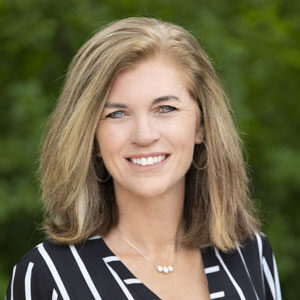My Journey to Becoming a Gottman Couples Therapist
One of my core values is that every child has a right to feel safe and receive loving care from those they depend upon. The thought of a child being hurt, scared or lonely in their own home – well, that riles me.
I entered the field of psychology and social work with the intention of helping children. In 1994, while completing my undergraduate studies, I began interning at a foster care program in Provo, Utah. I worked mostly with 16- and 17-year olds who were “aging out of the system” – a term that saddens me. It meant they were on the verge of adulthood and would be left completely on their own. No family support. No government entity to watch over them. No financial means except their own earnings.
Foster-care children’s greatest wish in life is for a family to love them, and hearing them express this desire is painful.
But, to hear a 17-year-old say, “I want to belong to a family,” when the assumption is that they’re ready to be independent… well, that is outright heart-rending.
Most teenagers in stable homes are posturing for independence from their parents. However, as a foster teens’ chances of belonging to a loving family come to an end, they still hope for a place and people to call home. The irony hurts every time I think about it.
It was then that I felt one of my callings in life was to help children. During graduate school, I elected to intern at Kaiser Permanente’s Child and Adolescent Clinic, where I helped children and adolescents struggling with issues such as depression, ADHD, substance abuse and panic disorders. I noticed parents with distressed marriages were hampered in their ability to provide treatment support for their children. And, I also saw that some of my young patients’ behavioral challenges closely correlated with the strength of their parents’ relationship.
In one case, the parents were from vastly different countries and their cultural differences strained their marriage. They fiercely loved their teenage son who suffered from anxiety and depression, and desperately sought ways to help him. As I worked with the teenager, I saw that much of his anxiety was related to his parents’ volatile marriage; he felt torn between loyalties and lived in constant fear of divorce.
During my counseling sessions with the parents, we discussed ways to improve their husband-wife relationship, and they successfully put our discussions into practice. Their marriage improved, and their son’s mental and emotional health improved.
Around this time, I was seeing several couples in private practice. Although I was working under the supervision of an experienced therapist, I still felt way over my head.
University instructors often reassure graduate school students that earning a master’s degree prepares them to successfully counsel “anyone who talks through your door.” I found this to be far from true.
I needed more precise training to work with couples. I discovered that a couples therapist, among many qualities, must work for the good of the marriage, while empathizing with each partner. And, the therapist must be able to simultaneously work with two people who each have their own desires, dreams and frustrations. This kind of work required a completely new skill set.
Despite not having specific couples therapy training, I received positive feedback from my client-couples. They said things like, “I hear your voice in my head at home when we start our old habits” and “I wish you could come home with us and tell me what to say when things get difficult.”
Although flattered, I was bothered by the idea that couples were looking to me for strength, even though I lacked the principle skills and data for counseling couples. In fact, I was unqualified. And unqualified means ineffective. If there’s one thing any therapist desires, it’s to be effective and competent in the help being offered.
I studied a variety of commonly used psychology perspectives, such as systems theory, cognitive-behavioral theory, psychoanalytical theory and narrative therapy. They were all so different, and I felt none clearly demonstrated superiority as a method for couples therapy.
Fortunately, a colleague told me about Gottman Method Couples Therapy and in 2003, I attended a Level 1 Clinical Training workshop presented by Dr. John Gottman himself. The rest is history.
In 2012, I earned my certification as a Gottman therapist. Two years ago, I presented the first Gottman workshop in Colorado open to couples. In June, I will be presenting a clinical training workshop for therapists, and have plans to offer additional workshops to help mental health professionals earn their own Gottman credentials.
Relationships are the very essence of life. I still believe every person deserves to feel safe, well cared for, and loved – especially by those who are most important to them. And the grown-ups are ones who have the power to create loving, safe atmospheres for themselves, their partners, and ultimately for their children.








